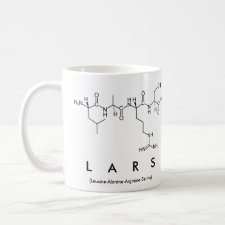
Authors: Andersson LI, Hardenborg E, Sandberg-Ställ M, Möller K, Henriksson J, Bramsby-Sjöström I, Olsson LI, Abdel-Rehim M
Article Title: Development of a molecularly imprinted polymer based solid-phase extraction of local anaesthetics from human plasma.
Publication date: 2004
Journal: Analytica Chimica Acta
Volume: 526
Issue: (2)
Page numbers: 147-154.
DOI: 10.1016/j.aca.2004.09.051
Alternative URL: http://www.cromlab.es/Art%C3%ADculos/SGE/MEPS/Development%20of%20a%20molecularly%20imprinted%20polymer.pdf
Abstract: Molecular imprints selective for a homologous series of local anaesthetics, including bupivacaine, ropivacaine and mepivacaine, were prepared and the resultant polymers were used for solid-phase extraction of human plasma. The template was a structural analogue, pentycaine, which was imprinted in methacrylic acid-ethylene glycol dimethacrylate copolymers. Equilibrium ligand binding experiments using radiolabelled bupivacaine were performed to characterize the imprinted polymers, as well as to identify optimal conditions for selective extraction of plasma samples. Dilution of the plasma prior to extraction with citrate buffer pH 5.0 containing ethanol and Tween 20 was found optimal for selective imprint-analyte binding, and for reduction of non-specific adsorption of lipophilic contaminants to the hydrophobic MIP surface. Wash steps using 20% methanol in water followed by a solvent switch to 10% ethanol in acetonitrile removed contaminants and strengthened the selective imprint-analyte binding. Elution under basic conditions using triethylamine-water-acetonitrile mixtures recovered bupivacaine in 89% yield with superior selectivity over elution under acidic conditions. The final protocol extracted trace levels of ropivacaine and bupivacaine from human plasma and allowed determination of bupivacaine in the range of 3.9-500 nmol L-1 and ropivacaine in the range of 7.8-500 nmol L-1 with inter-assay accuracies of 94-99 and 95-104%, respectively. This present investigation provides an improved understanding of approaches available for optimization of protocols for molecular-imprint based solid-phase extraction of plasma samples
Template and target information: pentycaine, bupivacaine, ropivacaine, mepivacaine



Join the Society for Molecular Imprinting

New items RSS feed
Sign-up for e-mail updates:
Choose between receiving an occasional newsletter or more frequent e-mail alerts.
Click here to go to the sign-up page.
Is your name elemental or peptidic? Enter your name and find out by clicking either of the buttons below!
Other products you may like:
 MIPdatabase
MIPdatabase









